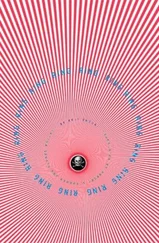It was a month now since this Yoshino guy had called him up out of the blue. A weekday afternoon.
Toyama had just come back from lunch and sat down at his desk. He answered the phone himself. The caller, this Yoshino, had first confirmed Toyama's name and the fact that in 1965 he had been a member of Theater Group Soaring, and then he'd taken a deep breath and said, I'd like to ask you a few questions about Sadako Yamamura, if I may.
Toyama remembered Yoshino's voice distinctly: it was that of a man struggling against panic, grasping at straw. And it was no wonder the man's voice had left such an impression, considering what he'd said. Toyama had never met the man, but he was talking about Sadako Yamamura, a woman whose name Toyama hadn't heard anyone utter for twenty-four years, as often as he might recall it in secret to himself. Every time he thought of her face his chest tightened and his pulse quickened. Obviously, he wasn't over her yet, even all these years later.
Yoshino said he wanted to get together and talk with him about Sadako. Toyama agreed to meet him once. He couldn't pass up the chance, considering how much the subject interested him, too. He arranged to meet Yoshino in a coffee shop in Akasaka, near his office.
Yoshino looked every inch the old-time reporter as, stroking his beard, he tried to coax forth Toyama's distant memories. He concentrated on the time immediately surrounding Sadako's disappearance.
Sadako Yamamura went missing in 1966, right after a Soaring performance, correct?
Yoshino was very persistent about wanting to know her movements after leaving the troupe. He didn't rush, and he paused between each question, but his vocal and facial expressions betrayed the depth of his interest in Sadako.
What happened to Sadako twenty-four years ago?
How was Toyama to know? He'd searched for her himself, desperately. If ever he'd found out where Sadako had disappeared to, his life now would be very different.
And so he knew exactly why the nightmare was back. It was all due to Yoshino, his mention of Sadako's name. It was the only thing that could have brought back those dreams, and all the suffering they had caused him.
They emerged from the hotel into glaring sunlight.
The harsh light bothered him—or was it his conscience, after what he'd done in that room? Quite a contrast to the mild signs of late autumn all around them.
They walked quickly up the sidewalk to a place where the crowd thinned out. Toyama clasped the woman's hand and muttered, "Well, gotta go."
"Back to the office?" she replied, with an untroubled smile. She took one hand from her hip and waved.
Goodbye.
"I've got a ton of work to catch up on."
"But in spite of that, you just couldn't control this," she said, gesturing as if to grab his crotch. "You never could."
It suddenly occurred to Toyama that it might be time to quit this. He wasn't young anymore, and there was no telling when one of his attacks might turn life-threatening.
"I'll give you a call," he said, blowing her a little kiss and turning away. After walking a bit, he turned to look back: she was still watching him. He waved, then hurried through the Nogizaka neighborhood toward Hitotsugi Street. When he'd said he had a ton of work to catch up on, it was no lie.
In his junior year of college he'd suddenly taken it into his head to become a playwright. That was how he'd come to join Theater Group Soaring's production department. So far so good, but it turned out that there were so many good writers and directors in the group who were senior to him that he knew he'd never get a chance to show what he was capable of. Placed in charge of music, he learned the job and then went back to school, graduating a year late. He lucked into a job at a record company, where he became a project director; he'd been doing it for twenty-three years now. The job was just something that had allowed him to utilize his experience with theater sound, but once he'd gotten into it he found it a fas-cinating line of work—he came to look at it as a calling.
It was a fun job, as long as he was in the studio involved with recording. He'd never once found that part of the job unpleasant. Sometimes he hated attending planning meetings with executives, but dealing with musicians gave him virtually no stress at all. All in all he felt it was a job worth doing, and he was glad he'd found it. Not only that, but the industry as a whole was healthy, and things looked like they were only going to get better. Things were bullish in every respect, his salary was all he could wish for, and he never lacked for female company. Toyama had no complaints about the situation he found himself in. Even the work that now awaited him back at the office was fundamentally something he enjoyed. He had no worries, other than, lately, some physical problems.
But he had to admit that hearing Yoshino mention Sadako Yamamura, and now dreaming about her again, unsettled him in ways he couldn't quite pin down.
Sadako, it was fair to say, was the only woman in the world for him. He'd botched his first marriage. The second one was more stable, and they had kids. Surrounded by children and a wife too young for him, he had a satisfying life now—but he often wondered "what if."
What would have happened if Sadako and I had gotten married?
That wasn't the only "if" that occurred to him.
If the end of the world came, who would I want to be with!
If I could do it all over, who would I spend my hfe with?
If I could only make love to a woman once in my life, who would it be?
The answer to all these questions, for Toyama, was Sadako. If she appeared before him this very instant and offered to accept him, he'd be prepared to give up anything and everything. He even thought he'd be willing to die, if he could only touch her skin once more.
I've got to call.
If he could catch up on his work today, he'd have quite a bit of free time tomorrow, November 27th. It wouldn't be too much trouble to go down to Yokosuka if he was asked to.
He decided it would be better to call from a pay phone than from the office, so he walked to the edge of the sidewalk and took out a telephone card and the man's business card. He punched the number for the Yokosuka Branch Office of the Daily News. Kenzo Yoshino himself answered.
Their last conversation had been pretty one-sided, with Yoshino asking all the questions. He'd seemed to be in a hurry, and had given only the most rudimentary replies to Toyama's inquiries. As soon as he'd learned what he wanted to know, or realized that he could get no further information from Toyama, Yoshino had cut their meeting short, getting up and walking out. It had left Toyama with a myriad of questions, and the feeling that Yoshino's be-havior had been inconsiderate, to say the least.
Why was a reporter sniffing around after Sadako anyway?
That was the most obvious question, and now it was whirling around in his head. Toyama briefly explained to Yoshino what he wanted to know and asked, politely, if they could get together and talk.
He added that if he needed to he'd be willing to go down to Yokosuka, but Yoshino said that wouldn't be necessary, and he explained his schedule for tomorrow.
A colleague from the Daily News had died the day before in a Shinagawa hospital, and Yoshino was planning to go up to Shinagawa for the funeral. He said he could meet him for an hour or so after the funeral.
Let's meet at four o'clock at Shinbaba Station on the Keihin Express line, at the ticket gate.
Читать дальше












